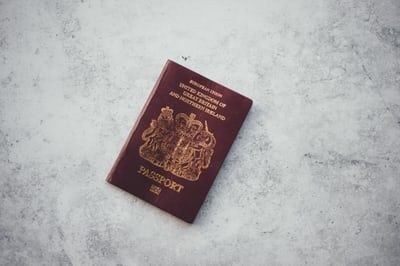By Candra George, Third Year, English
The Croft // Candra George explains why Brexit does not mean that it is time to stop travelling to Europe. The technicalities of changes of passports, travel insurance,driving licences and visas should not become a bureaucratic nightmare
On the 31stOctober, Britain will leave the EU. Now, you may have sense of déja-vu, but it appears to be the real-deal this time. Whether it’s a hard deal, soft deal or no-deal at all, we do know what it will mean for Brits going abroad.
Term is officially in full swing, and holiday blues are settling in, so it might be time to start planning your winter mini break or next summer trip.
Whilst you shouldn’t let Brexit stop you from booking your next holiday, there are a few steps you should take to make sure it doesn’t ruin your trip.
Passport

As of your date of departure, your passport will need to be at least six months away from expiry and be less than ten years old - regardless of how much longer it’s valid for. If you do not renew your passport you may not be able to travel to EU countries.
This tool can help you check how long your passport is valid for, and if it is valid for your destination.
Travel Insurance and Healthcare
The European Health Insurance Card (EHIC) may not be valid for British citizens after Brexit, so it’s important to get travel insurance that includes healthcare before you go.
Whilst the EHIC covers pre-existing medical conditions, not all travel insurance do, so it is important to check this out.
Driving
For those with the budget and licence, driving abroad will require extra documents after we leave the EU. Some countries require permits such as an international driving permit (IDP).
Visas
According to the European Commission’s proposals, you should be able to stay for up to 90 days in any EU county without a visa. However, after this period you may be required to have a visa to work and study in the EU. At border control, you may also be required to provide proof of your return to the UK with a transport ticket and show that you have a suitable amount of money for your stay.
Good news:
Security at airports in the UK and the EU will not change and according to the Foreign and Common Wealth Office; flights, ferries, coaches, the Eurostar and Eurotunnel will operate as normal. So, go ahead and treat yourself to that trip!
If you follow this advice, you will feel safe when taking your next trip. However, considering recent events, what may happen with Brexit remains uncertain. To ensure you have the most up to date advice before your trip, sign up for updates by email.The Foreign and Commonwealth Officealso offers travel advice on over 220 countries including laws, customs and currency.
Follow @travelaware on Instagram for travel related hints, tips and inspiration!
Featured image credit: Unsplash / Priscilla Du Preez
Find the Croft in every copy of Epigram newspaper









